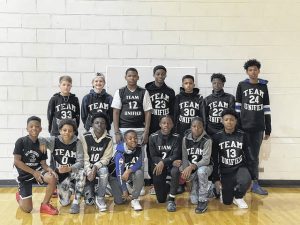
I’ll not play again said by Southeastern travel Ball young player who has been abused by their coach…
A young athlete from a Southeastern travel baseball team has made a heartbreaking declaration: “I’ll not play again.” The player, whose identity is being protected due to age and privacy concerns, has spoken out about the alleged abuse suffered at the hands of their coach. The claims have sent shockwaves through the sports community, prompting discussions on the treatment of young athletes and the responsibilities of coaches and organizations.
A Promising Career Cut Short
The young player, known for their exceptional talent and dedication to the game, had once been a rising star in travel baseball. Their passion for the sport had fueled years of training, dedication, and sacrifice. However, the recent allegations have cast a dark shadow over what was once a promising career.
“I used to love playing baseball,” the player said in a statement. “But after everything that happened, I can’t do it anymore. I’ll not play again.”
The allegations suggest a troubling pattern of emotional and physical mistreatment by the coach, which ultimately led the player to make the painful decision to walk away from the sport they loved.
Allegations of Abuse
According to sources close to the player and their family, the coach frequently engaged in inappropriate behavior, including verbal harassment, excessive punishment, and psychological manipulation. Some teammates reportedly witnessed the coach belittling the player during practices and games, using aggressive tactics that went beyond normal coaching discipline.
“There were times when [the coach] would call me names and embarrass me in front of everyone,” the player stated. “I felt like I was never good enough, no matter how hard I tried.”
In addition to verbal abuse, there are allegations of physical punishment disguised as training methods. Reports suggest that the coach made players endure excessive conditioning drills, even in extreme weather conditions, as a means of enforcing discipline.
Family and Community Reaction
The player’s family has expressed their devastation over the ordeal. “We trusted this coach to guide our child, not break them down,” said a family member. “No young athlete should ever feel like they have to quit the sport they love because of a coach’s mistreatment.”
The local baseball community has been divided over the allegations. While many have come forward to support the player, others have defended the coach, stating that their methods were simply “tough coaching.” However, experts argue that there is a clear distinction between rigorous training and abusive behavior.
“There’s a fine line between discipline and abuse,” said Dr. Karen Michaels, a sports psychologist. “When a young player feels degraded, humiliated, and unsafe, that’s not coaching—that’s abuse.”
Investigation and Legal Actions
Following the public outcry, the travel baseball organization overseeing the team has announced an internal investigation into the matter. Additionally, local authorities have been informed, and legal experts are reviewing whether the allegations warrant further action.
The coach in question has denied any wrongdoing, stating, “I’ve always pushed my players to be the best they can be. Sometimes that means being tough on them, but I would never intentionally harm any of my athletes.”
Despite this, several former players have stepped forward with similar experiences, claiming they, too, endured emotional distress under the same coach. Their testimonies have added weight to the young player’s allegations, making the case more concerning.
The Toll of Abuse in Youth Sports
Experts warn that abusive coaching can have long-lasting effects on young athletes. In addition to emotional and psychological trauma, some players develop anxiety, depression, and even post-traumatic stress disorder (PTSD) due to mistreatment.
“When a coach abuses their power, it shatters the trust that young athletes have in authority figures,” said Dr. Michaels. “It can take years for them to heal from the experience.”
The player’s decision to step away from the game has highlighted the importance of protecting young athletes from abusive coaching practices. Many advocates are calling for stricter regulations, better oversight, and improved reporting systems within travel sports organizations.
Calls for Reform
In response to the incident, youth sports advocacy groups have urged leagues and organizations to implement stricter policies against abusive coaching. Some have called for mandatory training programs that educate coaches on appropriate leadership and player treatment.
“We need to make sure that every coach is held accountable,” said Emily Rodriguez, director of the Youth Athletes’ Safety Alliance. “No child should ever feel unsafe or degraded while playing sports.”
Several lawmakers have also expressed interest in reviewing policies related to youth sports coaching, suggesting that more oversight could prevent similar cases in the future.
The Player’s Future
While the young player has decided to step away from competitive baseball, supporters hope that they will one day find healing and return to the game on their own terms. For now, they are focusing on recovery, surrounded by family and friends who are offering their full support.
“I just want to be happy again,” the player said. “Baseball was my life, but no game is worth the pain I went through.”
As the investigation unfolds, the sports world watches closely, waiting to see whether justice will be served. The case serves as a sobering reminder of the urgent need to protect young athletes from abuse, ensuring that sports remain a place of growth, passion, and joy—not fear.
Conclusion
This heartbreaking story has sent shockwaves through the Southeastern travel baseball community and beyond. It underscores the importance of creating a safe and supportive environment for young athletes and holding coaches accountable for their actions.
As discussions continue and the investigation progresses, one thing remains clear: no player should ever have to choose between their love for the game and their well-being. The young athlete’s bravery in speaking out serves as a powerful message that abuse in youth sports must be addressed and eradicated.





